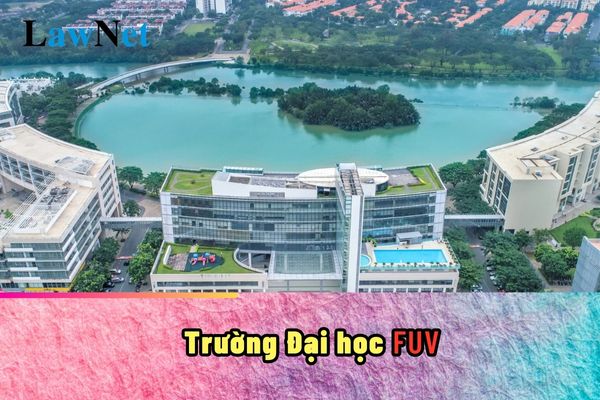Does Fulbright Unviersity Vietnam (FUV) have juridical personality?
Does Fulbright Unviersity Vietnam (FUV) have juridical personality?
According to Article 1 of Decision 819/QD-TTg 2016 on the establishment of Fulbright University Vietnam issued by the Prime Minister of Vietnam:
Fulbright University Vietnam (FUV) is the full name of Fulbright University.
Additionally, as stipulated in Article 2 of Decision 819/QD-TTg 2016:
Fulbright University Vietnam is 100% foreign-invested higher education institution, with legal status, own seal, and bank account, operating on a non-profit basis; its main campus is located in Ho Chi Minh City; under the State management of education and training by the Ministry of Education and Training and the territorial management of the People's Committee of Ho Chi Minh City.
Thus, based on the above provisions, Fulbright University Vietnam has legal status, own seal, own bank account, operates on a non-profit basis, and is 100% foreign-invested.
FUV operates under the State management of education and training by the Ministry of Education and Training and the territorial management of the People's Committee of Ho Chi Minh City.

Does Fulbright Unviersity Vietnam (FUV) have juridical personality? (Image from the Internet)
What are regulations on development of a curriculum of a university in Vietnam?
Pursuant to Article 2 of the Higher Education Training Program Regulation, issued with Circular 08/2021/TT-BGDDT, universities develop their curriculum as follows:
- The curriculum is developed using credit units, structured from subjects or courses (hereafter collectively referred to as courses). The curriculum must include mandatory courses and meet the training program standards as prescribed by the Ministry of Education and Training. In the case of dual or main-minor fields of study, the curriculum must clearly delineate the common and specific study volume for each field.
- Additionally, the content and learning outcomes of the curriculum apply uniformly to different forms and methods of training and to different student groups. For those who have graduated from different or other disciplines, the actual study volume is determined based on recognizing or transferring accumulated credits and exempting courses from the previous curriculum.
- The curriculum must be publicly available to students before admission and at the start of the course; changes and adjustments related to the curriculum must follow current regulations and be announced before implementation to avoid adverse impacts on students.
- Moreover, for each mode of training, the curriculum must provide a standard study plan for the entire course to guide students.
+ The standard study plan for the entire course for full-time training must align with the duration prescribed in the National Education System Framework, ensuring most students complete the training program;
+ The standard study plan for the entire course for part-time training must be at least 20% longer than full-time training for the same program.
- The maximum duration for students to complete the course is regulated in the institution's rules but must not exceed twice the duration according to the standard study plan for each training mode.
For students in bridging programs who have been exempted from the accumulated credit volume, the maximum time to complete the course is determined based on the proportionally reduced time of the standard study plan corresponding to the exempted volume.
Thus, universities develop their curriculum using credit units, structured from subjects or courses.
What are types of higher education training programs in Vietnam?
According to Article 4 of the Higher Education Training Program Regulation, issued with Circular 08/2021/TT-BGDDT:
Forms of training
1. Full-time training:
a) Teaching activities are conducted at the training institution, except for activities like practice, internship, practical experiences, and online teaching which can be conducted outside the training institution;
b) Teaching activities are organized from 06:00 AM to 08:00 PM on weekdays from Monday to Saturday; the timing of specific activities of the training program is regulated by the training institution.
2. Part-time training:
a) Teaching activities are conducted at the training institution or at the collaborating training venue according to the training cooperation regulation in Article 5 of this Regulation. Practice, internship, practical experience, and online teaching activities can be conducted outside the training institution or collaborating venue;
b) The timing of teaching activities is flexible within the day and week.
3. For prioritized training fields serving the development of socio-economic human resources in each period, the Ministry of Education and Training provides guidelines for appropriate forms of training.
Thus, there are currently 02 types of higher education training programs:
- Full-time training.
- Part-time training.

